Goodbye Christopher Robin: The bittersweet tale behind Winnie-the-Pooh
A poignant and heartfelt biopic unveils the story of how A.A. Milne created “Winnie-the-Pooh,” inadvertently casting a shadow over his son, Christopher Robin’s childhood.
Set against the backdrop of post-World War I England, the film introduces Alan Alexander Milne (Domhnall Gleeson), a London playwright grappling with the psychological scars of war. Haunted by the echoes of explosions and gunfire, Alan, known as Blue to his loved ones, seeks solace in the countryside. Accompanied by his wife Daphne (Margot Robbie) and their young son Christopher Robin (Will Tilston), he retreats to a quaint cottage on the edge of a forest. There, Milne hopes to pen a book denouncing the futility of war. However, when Daphne returns to London and the servants take leave, Blue finds himself alone with his son for the first time. Together, they embark on a journey of imagination, weaving enchanting tales that would soon become the beloved “Winnie-the-Pooh” stories.
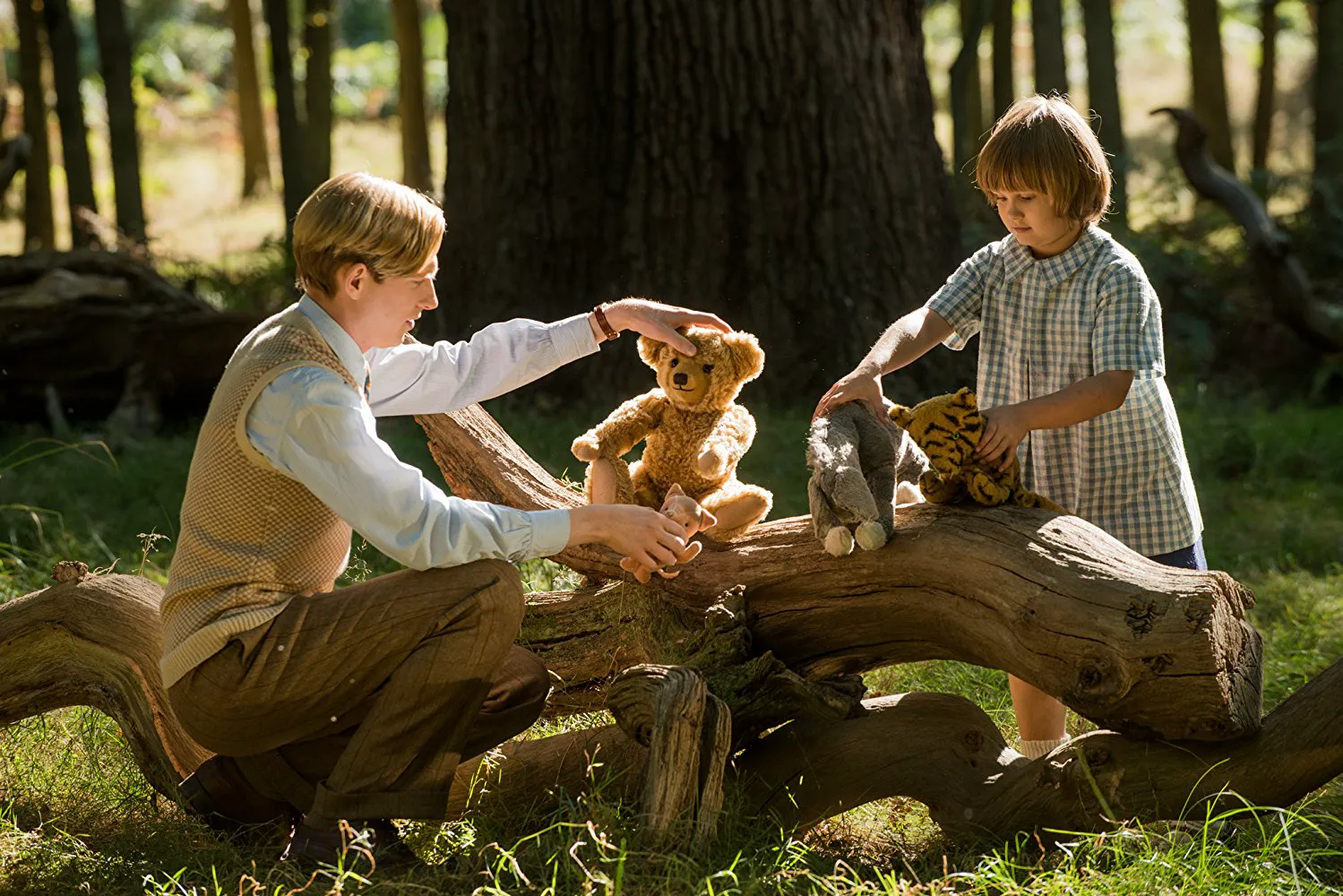
The Dark Side of a Children’s Classic
Directed by Simon Curtis (“My Week with Marilyn”), “Goodbye Christopher Robin” delves into the origins of one of the most cherished children’s books in history. However, it’s far from a saccharine biopic. While “Winnie-the-Pooh” brought joy to millions, it brought anything but joy to its creator and the boy who inspired it. Instead, the seemingly innocent tales of anthropomorphic toys inadvertently fractured the Milne family, who were still reeling from the horrors of war.
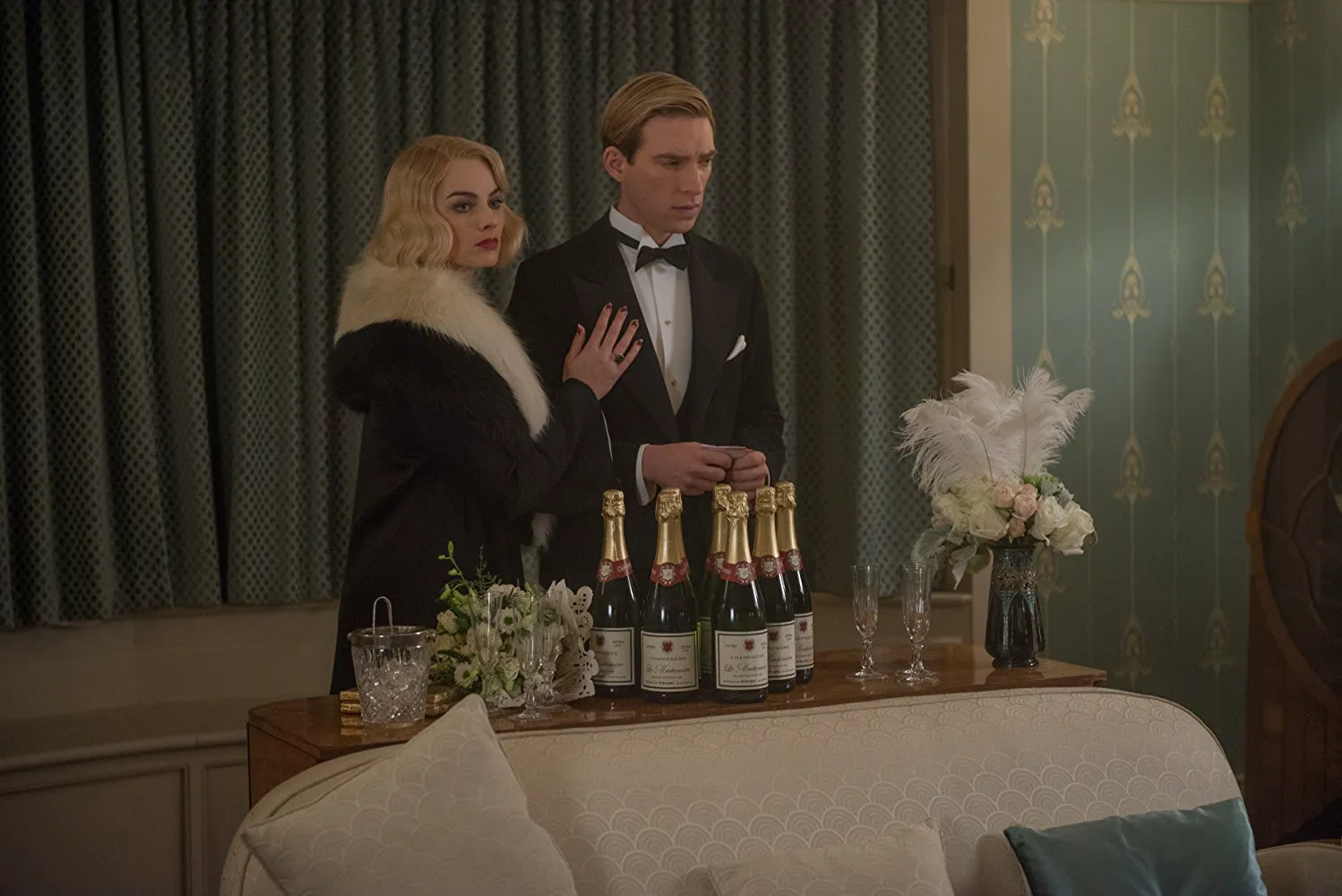
The Price of Fame
How did this happen? The Milnes succumbed to the relentless publicity machine that propelled “Winnie-the-Pooh” to bestseller status. Alan and Daphne transformed their son into a spectacle, parading him around the world, posing him for endearing photographs, and forcing him to perform for crowds, recounting how he named his beloved teddy bear. While children worldwide envied Christopher Robin, he loathed being called by that name (his family affectionately called him Billy Moon) and yearned for privacy. More than anything, he longed to spend quality time with his parents and beloved nanny.
Tragically, Christopher’s suffering didn’t end when his father stopped writing “Pooh” books. He lived a long life, but to the world, he remained “the real Christopher Robin.” This notoriety haunted him, leading him to distance himself from his father’s legacy and forgo the immense wealth that “Winnie-the-Pooh” generated for his family. His relationship with his parents was strained, rivaling the dysfunctional families depicted in contemporary Hollywood dramas.
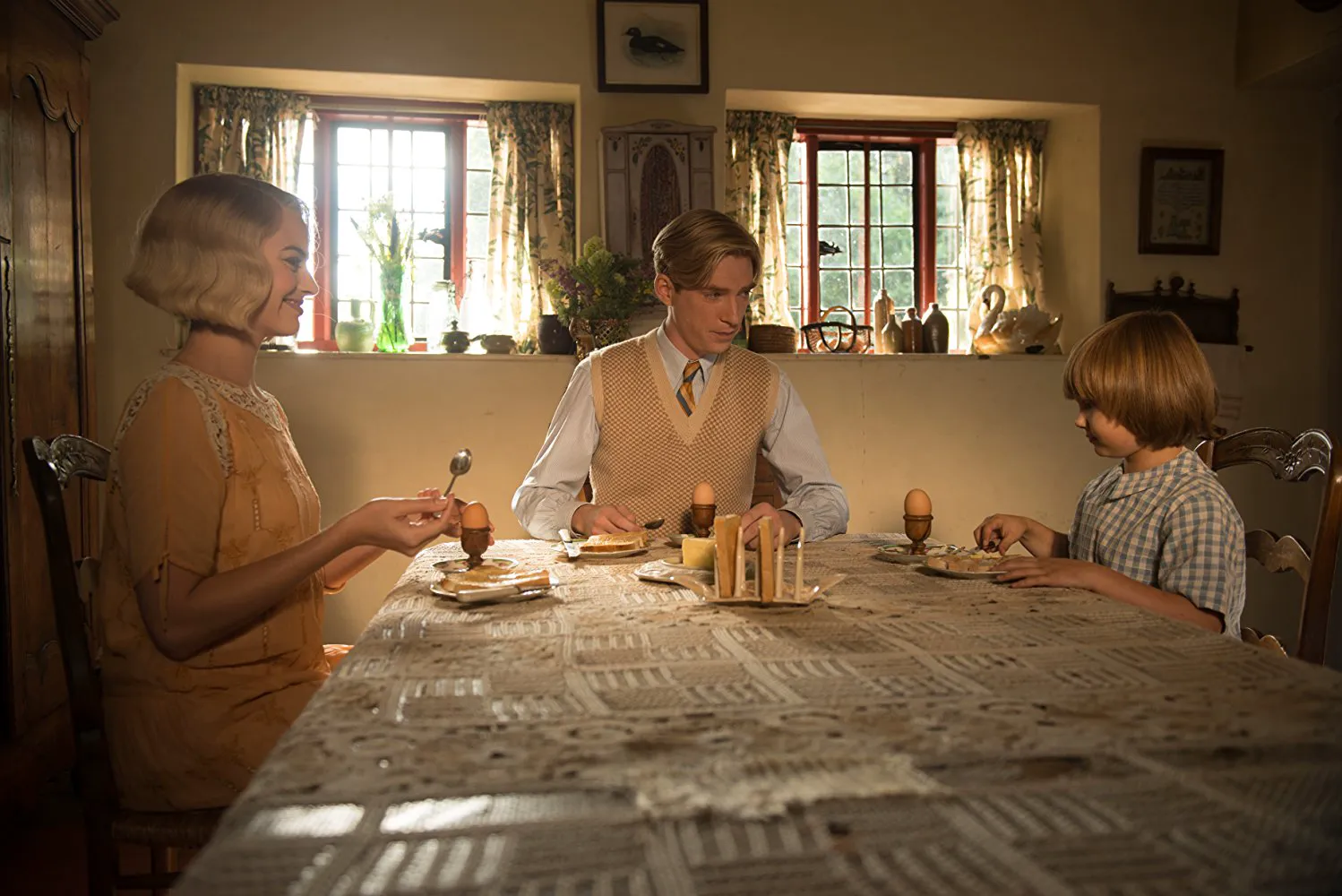
Notably, this film marks the third collaboration between Domhnall Gleeson and Kelly Macdonald, and the second between Domhnall Gleeson and Margot Robbie.
A Cautionary Tale
“Goodbye Christopher Robin” is a poignant and cautionary tale about the perils of thrusting children into the adult world. Children crave love and attention, not fame. They desire playtime with family and friends, not interviews. And they certainly don’t want to be defined by their parents’ success.
While the film does offer moments of heartwarming charm, particularly in the scenes where Blue and Billy create their fantastical stories, these moments are fleeting. They are bookended by Blue’s post-war trauma and Billy’s struggles after the book’s publication. The boy seems to inherit his father’s pain, with Winnie-the-Pooh acting as the family’s unlikely confessor.
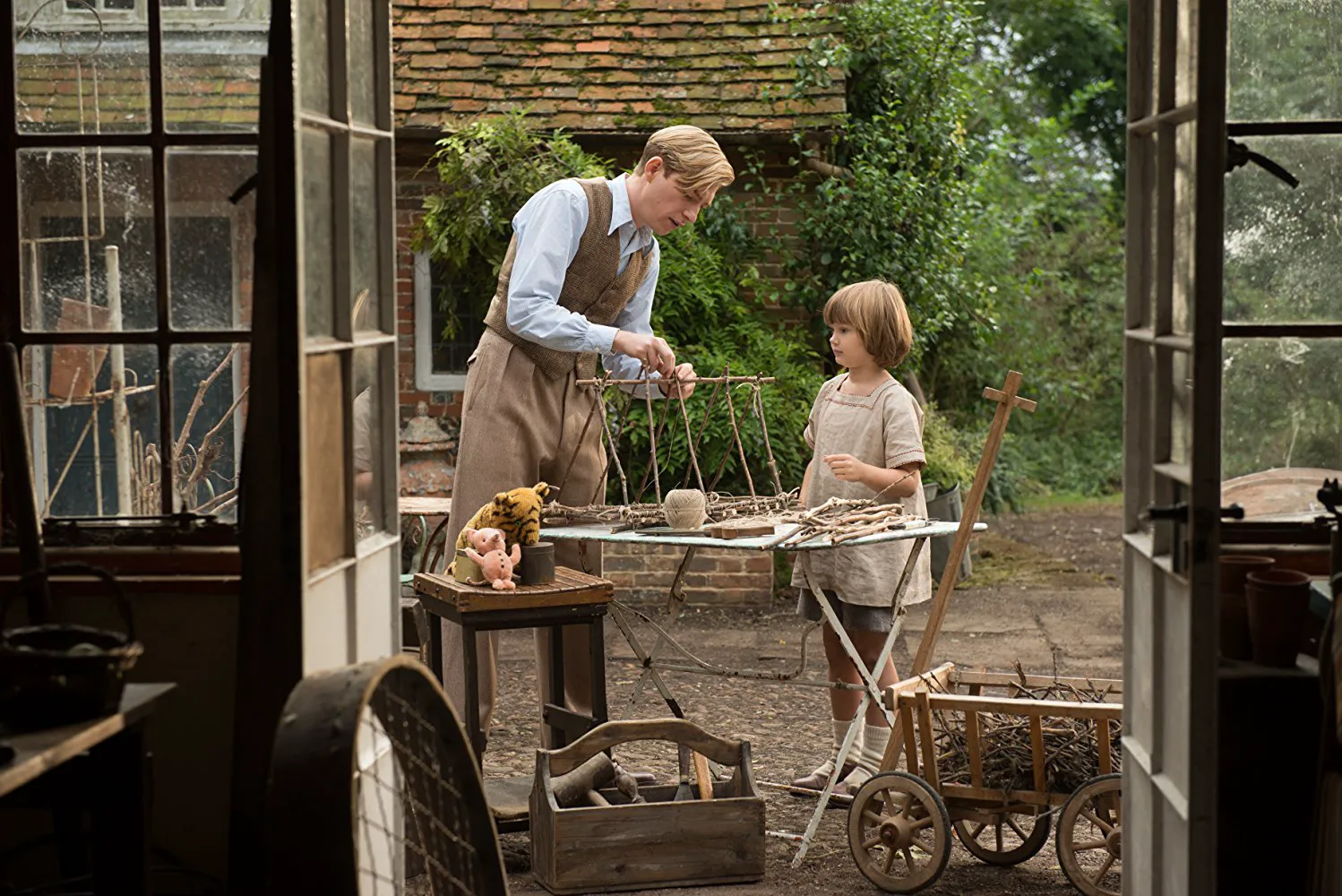
Margot Robbie is only five years older than Alex Lawther, who plays the adult Christopher Robin.
Stellar Performances
The film revolves around Domhnall Gleeson and Will Tilston (later replaced by Alex Lawther), but the supporting cast shines as well. Margot Robbie delivers a compelling portrayal of a woman torn between genuine love for her son and husband, the capricious narcissism of a socialite, and the spiritedness of a P.G. Wodehouse heroine. Robbie’s charisma and the character’s inherent contradictions transform Daphne from a mere supporting character into a formidable presence.
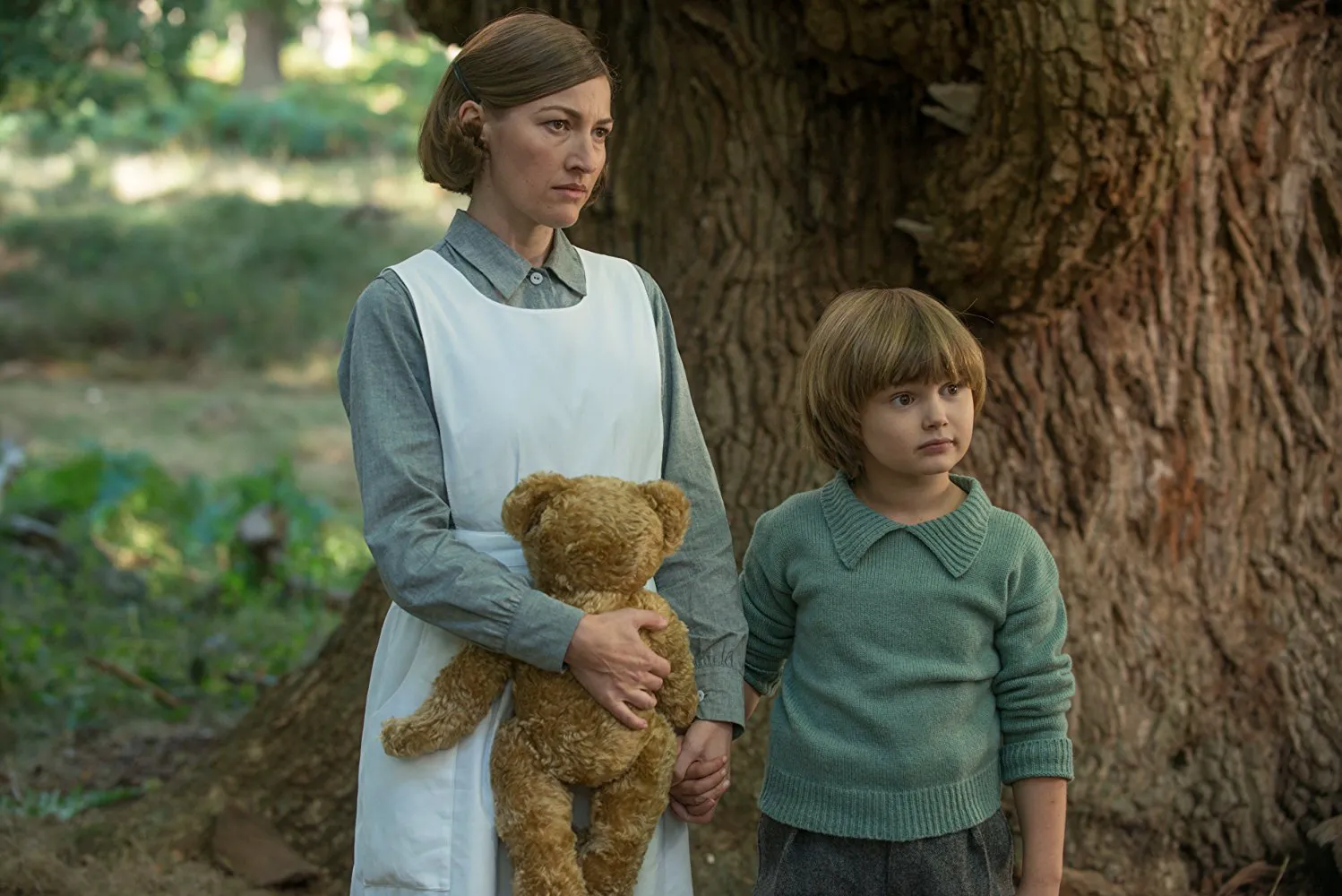
If Robbie is the film’s Joker, Kelly Macdonald, as the Scottish nanny Olive, serves as its Alfred. Unlike her reserved employers, Olive freely expresses her affection for Billy, becoming his emotional anchor and a beacon of hope. This isn’t an exaggeration. According to Christopher Robin’s memoirs, he loved his nanny more than his mother, and perhaps even more than his father.
A Portrait of British Society
Ultimately, “Goodbye Christopher Robin” is not only a biopic about the Milnes but also a portrait of a traditional British upper-class family contrasted with their servants. Some offer fame and fortune, while others provide genuine warmth, and the film makes it clear which the child prefers. Nevertheless, British traditions persist and spread to other countries, making Curtis’s film both unsettling and relevant.
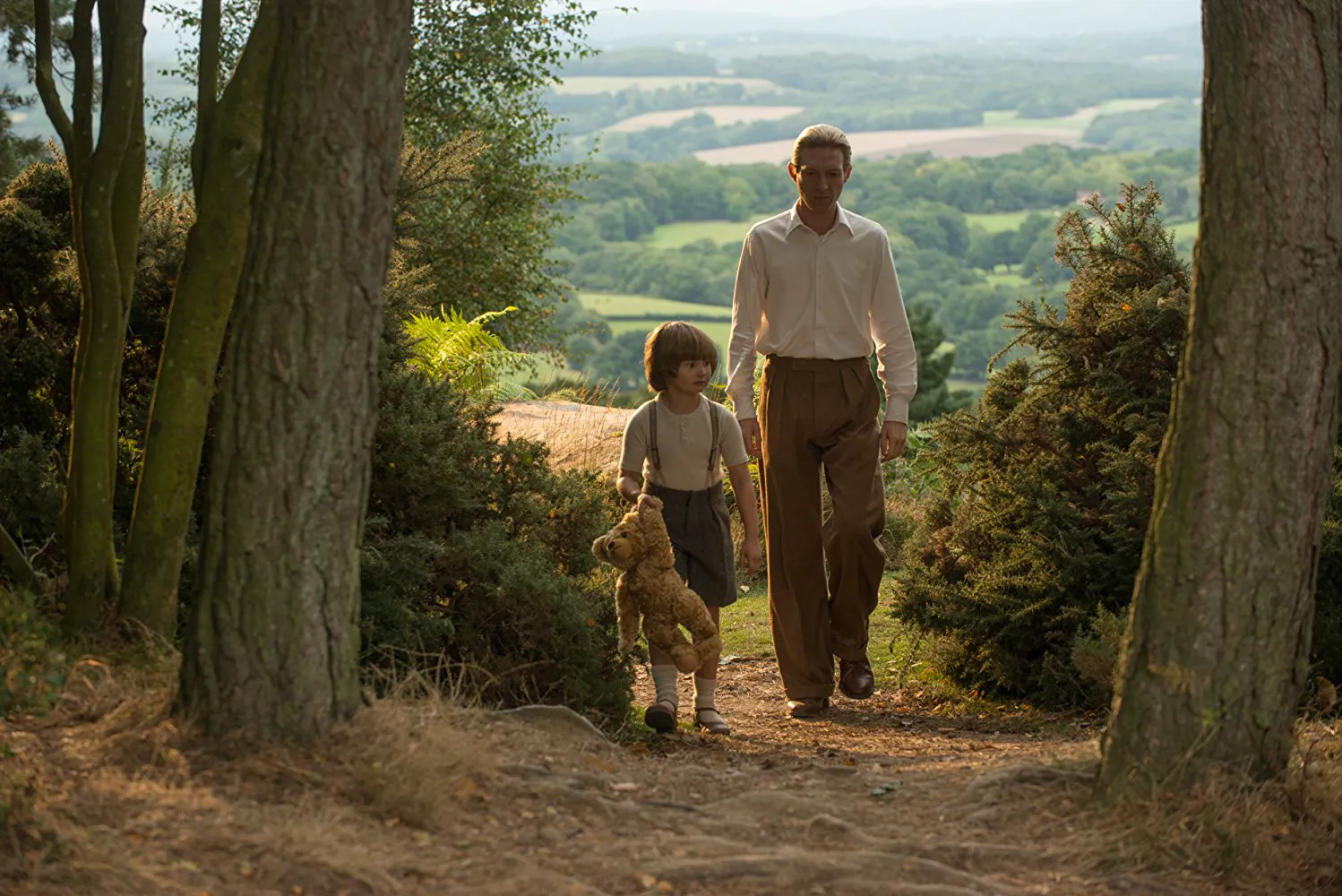
The film seamlessly blends its relevant themes with a convincing, albeit slightly idealized, depiction of Britain between the World Wars. The filmmakers have masterfully recreated the era’s cars, costumes, interiors, cuisine, and even bookstores.
While “Goodbye Christopher Robin” may not be a cinematic masterpiece, it is a moving and thought-provoking film that deserves attention.